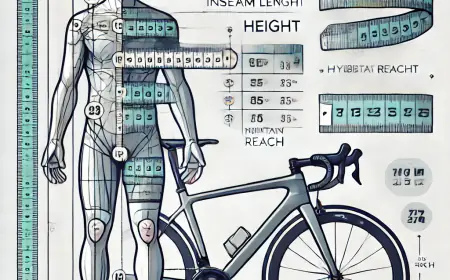When Dizziness Becomes a Daily Struggle: What to Do
Struggling with daily dizziness? Discover the causes, effective treatments, and expert tips to manage and prevent dizziness from disrupting your life.

Feeling dizzy occasionally is something many adults experience. Maybe you’ve felt lightheaded after standing up too quickly or experienced a moment of imbalance. But what happens when dizziness becomes a daily challenge? Understanding the causes and addressing the symptoms can help bring balance back to your day and improve your overall quality of life.
What Is Dizziness?
Dizziness is a term people often use to describe a range of sensations, including feeling faint, lightheaded, unsteady, or as if the world is spinning around you (known as vertigo). While occasional dizziness might not interfere with your life, frequent episodes can be disruptive and unsettling.
Some common symptoms associated with dizziness include lightheadedness or a feeling of faintness, a sense of spinning or movement even when standing still, unsteadiness or a loss of balance, blurred vision during movement, and nausea or a sensation of discomfort. These sensations can last a few moments or persist, making simple everyday activities more challenging.
What to Do if Dizziness Is a Daily Struggle?
Living with daily dizziness can impact your productivity and peace of mind. Here are practical steps to address it and minimize its interference.
Keep Track of Symptoms
Pay attention to when and how often dizziness occurs. Noting patterns, such as whether episodes happen after physical activity, during specific times of the day, or in response to certain foods, can help identify potential triggers.
Stay Hydrated
Dehydration is often linked to lightheadedness and dizziness. Drinking sufficient water throughout the day can help maintain your body's balance and prevent these episodes.
Practice Safe Movements
If dizziness strikes when you move suddenly, approach movement with care. Get up slowly from sitting or lying down, and use stabilizing objects like railings or furniture when needed.
Focus on Diet and Nutrition
Low blood sugar or poor nutrition may contribute to dizziness. Balanced meals and snacks rich in protein and whole foods may help keep symptoms at bay.
Explore Stress Management
Chronic stress and anxiety can intensify dizziness. Calm your mind with activities like deep breathing, meditation, or light yoga to regain a sense of calm and control.
Consult with a Professional
While managing symptoms at home is helpful, speaking to a healthcare professional can provide more clarity. Recording your symptoms to share with them may be especially insightful.
What Are the Options for Treatment?
During a medical appointment for dizziness, a doctor will typically begin by asking detailed questions about your symptoms, medical history, and any potential triggers. They may perform a physical examination, focusing on your balance, coordination, and inner ear functions.
Additional blood work, imaging scans, or hearing assessments may be recommended to identify the root cause. The doctor will then provide a tailored treatment plan to help manage and reduce dizziness effectively. Treatment options for dizziness vary and often depend on the underlying cause. Once a healthcare provider pinpoints what’s triggering your episodes, they will guide you toward effective strategies.
Some potential treatment options might include:
Physical Therapy: Exercises targeting balance and stability can help if dizziness stems from inner ear issues. Vestibular rehabilitation training is a common approach for such cases.
Medications: Certain prescription or over-the-counter remedies may relieve symptoms of dizziness due to anxiety, motion sickness, or inflammation in the inner ear.
Lifestyle Adjustments: Subtle changes in habits, like incorporating mindfulness practices or adjusting screen usage, may help reduce dizziness for some individuals.
Specialized Treatments: Your healthcare provider may recommend tailored treatment plans or therapies for specific conditions, such as migraines or Meniere’s disease.
A Path Toward Stability
Dizziness that becomes a daily part of life might be overwhelming, but there are steps to take to regain control. Whether it’s tracking your symptoms, making minor lifestyle adjustments, or exploring treatment options, there’s always a way forward. If dizziness continues impacting your daily routines, consult a healthcare provider today. Finding the underlying cause and exploring solutions with an expert opens the doors to relief.
What's Your Reaction?






















































































